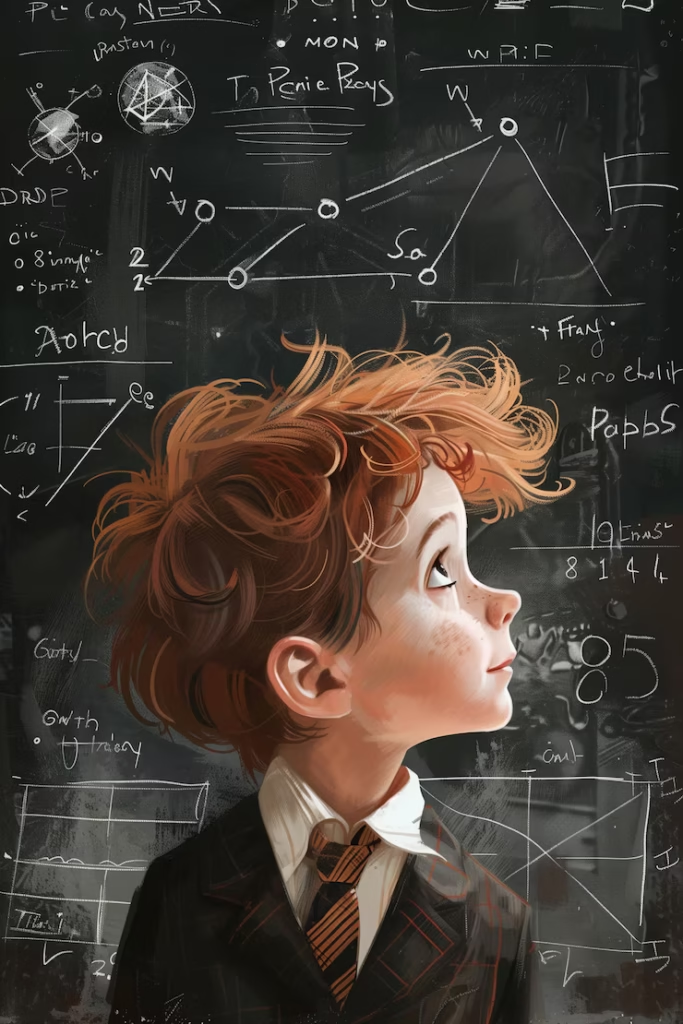How Do Students with a Growth Mindset See Their Mistakes? 5 Empowering Perspectives
Have you ever made a mistake and felt like a complete failure? We’ve all been there. That sinking feeling in your stomach, the frustration, maybe even the urge to just give up. But what if you could view those moments, those inevitable stumbles, in a completely different light? What if, instead of seeing a mistake as a roadblock, you saw it as a stepping stone? That’s the power of a growth mindset, and it can fundamentally change how you approach learning and life.
This article speaks directly to you, the learner, the striver, the one who’s willing to embrace challenges. We’re going to dive deep into how students with a growth mindset see their mistakes, and more importantly, how you can adopt this perspective to unlock your full potential.
How do students with a growth mindset see their mistakes?
Table of Contents
How do students with a growth mindset see their mistakes: The Core

Before we explore the specific ways growth-minded students view mistakes, it’s crucial to understand the foundational concept. A growth mindset, a term popularized by Carol Dweck, is the belief that your abilities and intelligence aren’t fixed. You believe you can develop them through dedication, hard work, and, yes, even through making mistakes. It’s the opposite of a fixed mindset, where you might believe your talents are innate and unchangeable. With a fixed mindset, mistakes feel like a judgment on your inherent abilities. With a growth mindset, they become opportunities.
5 Ways Growth Mindset Students View Mistakes
1. As Opportunities for Learning
This is perhaps the most significant difference. Instead of viewing a mistake as a sign of failure, you see it as a chance to learn something new. Think of it like this: every time you make a mistake, you’ve identified an area where your understanding is incomplete. It’s like a detective uncovering a clue! You can now ask yourself: “What went wrong? What can I do differently next time?”
- Key Point: Mistakes highlight gaps in knowledge or skill.
- Data/Source: Dweck’s research consistently shows that individuals with a growth mindset actively seek out challenges and view mistakes as opportunities for learning.
2. As Stepping Stones to Improvement

Growth-minded students understand that progress isn’t always linear. It’s not a straight shot to the top; it’s a winding path with bumps and detours. Each mistake is simply a step along that path. You’re not where you want to be yet, but you’re closer than you were before. The mistake provides valuable feedback, guiding you toward a better approach.
- Key Point: Mistakes are seen as part of the journey, not the end of the road.
- Analogy: Think of learning to ride a bike. You’re bound to fall a few times, but each fall teaches you something about balance and coordination.
3. As Feedback, Not Failure
This is a crucial shift in perspective. Instead of internalizing the mistake and labeling yourself a “failure,” you see it as external feedback. The mistake isn’t a reflection of you; it’s a reflection of your strategy. It’s like getting a low score on a practice test. It doesn’t mean you’re incapable of mastering the material; it means you need to adjust your study methods.
- Key Point: Mistakes provide valuable information about what’s working and what’s not.
- Example: A scientist performing an experiment doesn’t see a failed result as a personal failure; they see it as data that informs their next hypothesis.
4. As Challenges to Embrace
Students with a growth mindset aren’t afraid of challenges; they actively seek them out. They know that struggling and making mistakes are essential parts of the learning process. It’s in those moments of discomfort that real growth occurs. This doesn’t mean they enjoy making mistakes, but they don’t shy away from situations where mistakes are likely.
- Key Point: Difficult tasks, where mistakes are more likely, are seen as opportunities for significant learning.
- Analogy: A weightlifter doesn’t get stronger by lifting the same light weights every day; they need to progressively increase the weight, even if it means struggling and failing sometimes.
5. As Opportunities for Reflection and Self-Assessment
After making a mistake, a growth-minded student takes the time to reflect on what happened. They don’t just brush it off or dwell on the negative emotions. They analyze the situation, identify the root cause of the error, and develop strategies to avoid repeating it in the future. This process of self-assessment is crucial for continuous improvement.
- Key Point: Mistakes prompt introspection and lead to the development of better learning strategies.
- Technique: Keeping a “mistake journal” where you document your errors, analyze their causes, and plan for future improvements can be a powerful tool.
Practical Strategies for Cultivating a Growth Mindset

Here are some strategies to help you, to train you mind to develop a growth mindset
- Reframe Your Self-Talk: Pay attention to the language you use when you make a mistake. Instead of saying “I’m so stupid,” try saying “I haven’t mastered this yet.”
- Focus on the Process, Not Just the Outcome: Celebrate your effort and persistence, regardless of the result.
- Seek Out Challenges: Don’t be afraid to step outside your comfort zone.
- Ask for Feedback: Don’t be afraid to ask for help from teachers, peers, or mentors.
- Learn from Others’ Mistakes: Pay attention to the mistakes of others and see what you can learn from them.
- Embrace the Power of “Yet”: Add the word “yet” to the end of sentences where you describe something you haven’t mastered. This simple word can shift your perspective from fixed to growth.
| Fixed Mindset | Growth Mindset |
|---|---|
| Mistakes are a sign of failure. | Mistakes are opportunities for learning. |
| Abilities are innate and unchangeable. | Abilities can be developed through effort. |
| Avoids challenges. | Embraces challenges. |
| Gives up easily. | Persists in the face of setbacks. |
| Sees effort as fruitless. | Sees effort as the path to mastery. |
FAQ: How Do Students with a Growth Mindset See Their Mistakes?
Let’s address some common questions related to our main topic:
- Q: Do growth-minded students never feel bad about making mistakes?
A: Of course, they do! Everyone experiences negative emotions when they make a mistake. The difference is that growth-minded students don’t let those emotions paralyze them. They acknowledge the feelings, learn from the experience, and move on. - Q: Is it possible to change from a fixed mindset to a growth mindset?
A: Absolutely! It takes conscious effort and practice, but your mindset is not set in stone. By consistently challenging your fixed-mindset beliefs and adopting growth-minded strategies, you can cultivate a more resilient and adaptable approach to learning. - Q: How can I help someone else develop a growth mindset?
A: Encourage them to focus on their effort and progress, rather than just the outcome. Praise their persistence and resilience. Help them see mistakes as learning opportunities. Share your own experiences with embracing challenges and learning from setbacks. - Q: What are some resources for learning more about growth mindset?
A: Carol Dweck’s book “Mindset: The New Psychology of Success” is a great starting point. There are also numerous online articles, videos, and courses available on the topic. Search for resources related to “growth mindset,” “learning strategies,” and “resilience.”
Conclusion: Embrace the Journey of Learning
The journey of learning is filled with twists, turns, and, inevitably, mistakes. How you choose to view those mistakes will profoundly impact your progress and your overall well-being. By adopting a growth mindset, you can transform setbacks into stepping stones, failures into feedback, and challenges into opportunities for growth. Remember, it’s not about being perfect; it’s about embracing the process of continuous improvement. You have the power to cultivate a growth mindset, and by doing so, you unlock your potential for learning and achieving far more than you ever thought possible. Start reframing your mistakes today, and see how far you can go!
Now, it’s your turn. What’s one mistake you’ve made recently, and how can you view it through a growth mindset lens? Share your thoughts in the comments below! And don’t forget to share this article with anyone who might benefit from learning about the power of a growth mindset. Let’s all embrace the journey of learning together!

